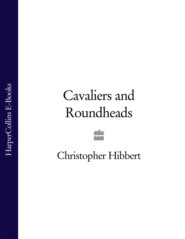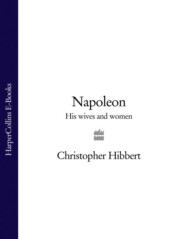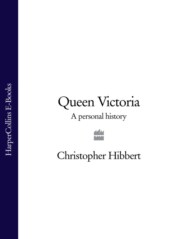По всем вопросам обращайтесь на: info@litportal.ru
(©) 2003-2025.
✖
Disraeli: A Personal History
Настройки чтения
Размер шрифта
Высота строк
Поля
(#litres_trial_promo)
Disraeli was at his most splendid. He was wearing a ‘black velvet coat lined with satin, purple trousers with a gold band running down the outside seam,’ Lady Dufferin recalled, insisting that there was no exaggeration in the description, ‘a scarlet waistcoat, long lace ruffles, falling down to the tips of his fingers, white gloves with several brilliant rings outside them, and long black ringlets rippling down upon his shoulders’.
(#litres_trial_promo)
Lady Dufferin also recalled Disraeli’s riposte to a remark of her ‘insufferable’ brother-in-law, the dissolute and pretentious barrister, the Hon. George Norton, who asked his guest to drink a particular kind of wine, saying he had never tasted anything so good before. Disraeli agreed that the wine was very good. ‘Well,’ said Norton, ‘I have got wine twenty times as good in my cellar.’ ‘No doubt, no doubt,’ said Disraeli, ‘but, my dear fellow, this is quite good enough for such canaille as you have got here today.’
(#litres_trial_promo)
Three or four months after this dinner at the Nortons’, at the end of June 1833, Disraeli again wrote to his sister to assure her that his social life was as busy as ever: his table was ‘literally covered with invitations’, some from people he did not even know. He dined one day with the St Maurs, where he spoke to Lady Westmorland (‘very clever’) and decided that Lord St Maur had ‘great talent’, which developed itself in a domestic circle though otherwise he was ‘shy-mannered’. In the evening there was a good soirée at Lady Charleville’s, where he met Lady Aldborough, who was deaf; and he could not ‘bear deaf people’, who never could repeat what he had said ‘even to Princes’.
There was a prince that evening at Lady Charleville’s, the Prince of Canino, born Luciano Buonaparte. He met another Buonaparte at Mrs Wyndham’s, Joseph Buonaparte, Luciano’s eldest brother, with ‘his beautiful daughter’; and afterwards he went to the Caledonian Ball ‘in a dress from my Oriental collection’.
(#litres_trial_promo)
‘London is emptying fast but gay,’ he wrote three weeks later, on 30 July. ‘Lady Cork [the eighty-seven-year-old widow of the seventh Earl of Cork] had two routs. All my best people, no blues [bluestockings]. At a concert at Mrs Mitford’s I was introduced to Malibran [Maria-Félicita Malibran, the operatic contralto] who is to be the heroine of my opera. She is a very interesting person.’ ‘My letters are shorter than Napoleon’s,’ he added in his letter to Sarah, ‘but I love you more than he did Josephine. I shall be down tomorrow.’
When he did get down to Bradenham that summer, he began writing an account of himself, at once a self-examination and a self-congratulation, in parts contradictory, in his ‘Mutilated Diary’.
‘I have passed the whole of this year in uninterrupted lounging and pleasure,’ he wrote. ‘My life has not been a happy one. Nature has given me an awful ambition with fiery passions. My life has been a struggle, with moments of rapture.’
My disposition is now indolent [he continued]. I wish to be idle and enjoy myself…[Yet] my career will probably be more energetic than ever, and the world will wonder at my ambition. Alas, I struggle from Pride. Yes! It is Pride that now prompts me, not Ambition. They shall not say I have failed.
I have not gained much in conversation with men. Bulwer is one of the few with whom my intellect comes into collision…Lockhart is good for tête-à-têtes…But he is overrated…The man from whom I have gained most in conversation is [Paul Emile] Botta…If I add to these my father, the list comprises the few men from whose conversation I have gained wisdom…
I make it a rule now never to throw myself open to men. I do not grudge them the knowledge I could impart…but, as I never get anything in return, I do not think the exertion necessary.
As a lively companion, of ceaseless entertainment and fun, no one, perhaps, equals Charles Mathews, the son of the comedian, but far exceeding his father, who is, I understand, jealous of him…
I can read characters at a glance; few men can deceive me.
My mind is a continental mind. It is a revolutionary mind. I am only truly great in action. If ever I am placed in a truly eminent position I shall prove this. I could rule the House of Commons although there would be a great prejudice against me at first.
(#litres_trial_promo)
But now at Bradenham it was to poetry that he devoted many, if not most, of the waking hours of his life.
‘I live here like a hermit, and have scarcely seen my family,’ he told Sara Austen. ‘I rise at seven, and my day passes in study and composition.’ For a time he left Bradenham for Southend and there also, ‘living on snipes and riding a good deal’, he passed his days ‘in constant composition’.
(#litres_trial_promo)
He had first conceived the idea for this great work of poetry, to be called the Revolutionary Epick, during his tour of the Middle East. ‘Standing upon Asia,’ he said, ‘and gazing upon Europe, with the broad Hellespont alone between us, and the shadow of night descending on the mountains, these mighty continents appeared to me, as it were, the rival principles of government that, at present, contend for the mastery of the world. “What!” I exclaimed, “Is the revolution of France a less important event than the siege of Troy? Is Napoleon a less interesting character than Achilles?”’
(#litres_trial_promo)
After weeks of hard work he told Sara Austen that he had already written four thousand lines of verse and was ready to print them. ‘The whole of it is matured in my mind,’ he said, ‘though probably it could not be completed under thirty thousand lines.’ He sought her help in finishing it: ‘Are you sure a Creole is dark?’ he asked her about the Empress Josephine. ‘No matter, I will make her brunette. And what exactly is a sou-wester?’ He was ‘perfectly ignorant of the geography of the wind’ and had no atlas to which he could refer.
(#litres_trial_promo)
In the third week of January 1834, the first canto having been finished, he offered to bore the Austens with a recitation of it one evening when they were on their own. Undeterred upon arrival at their house to find a party assembled for dinner, he took the floor to perform, in his own words, ‘the part of the importunate author’.
Henry Layard was among the guests and provided an account of that evening:
There was something irresistibly comic in the young man dressed in the fantastic, coxcombical costume that he then affected – velvet coat of an original cut thrown wide open…and ruffles to its sleeves. Shirt collars turned down in Byronic fashion, an elaborately embroidered waistcoat whence issued voluminous folds of frill, and shoes adorned with red rosettes – black hair pomatumed and elaborately curled, and his person redolent with perfume – announcing himself as the Homer or Dante of the age.
(#litres_trial_promo)
In ‘pretentious tones’ he read the whole of the first canto, making dramatic gestures which presented one of those in his audience, his fellow author, Samuel Warren, with an irresistible opportunity to ridicule him. Warren did so with such accurate mimicry that the audience burst into laughter.
(#litres_trial_promo)
Derision as much as bewilderment and disappointment greeted the work when it was published in two parts in March and June 1834. Disraeli had expected a far different response.
‘I have executed the work to my satisfaction, and, what is more, to the satisfaction of my father, a critic difficult to please,’ he told Benjamin Austen. ‘I await the result with composure, although I am not sanguine of pleasing the million. I feel that I have now done enough for my reputation and that I am at length justified in merely looking to my purse.’
(#litres_trial_promo)
Concealing as best he could the disappointment he felt at the reception of the heroic verses of the Revolutionary Epick – the dedication of which the Duke of Wellington had been offered and had declined, on the grounds that he never did accept such offers because of the necessity of perusing every work presented to him for this purpose
(#litres_trial_promo) – Disraeli once more became an unmistakable sight in London drawing-rooms in the season of 1834.
Back in London in May, he dined with the widowed Lady Blessington. ‘Also there were Lords Castlereagh, Elphinstone and Allen…Lord Wilton was the absent guest, having to dine with the King, but he came in the evening.’ ‘Hope’s ball on Monday was the finest thing in the year,’ he continued his account, ‘supped off gold and danced in the sculpture gallery. Today is the Drawing-room…I dine with O’Connell on Saturday…I was at Lady Dudley Stuart’s on Sunday – a pleasant circle – and made the acquaintance of Lord Hertford [Lord Monmouth in Disraeli’s Coningsby and Lord Steyne in Thackeray’s Vanity Fair]. I dine with Lady Cork today to meet the Mulgraves, Tavistocks and Lincolns…I made [William] Beckford’s acquaintance at the opera on Thursday. Conversation of three hours…I dined [again] yesterday with Lady Blessington and Durham [the Lord Privy Seal in Earl Grey’s cabinet] and he talked to me nearly the whole evening; and afterwards at Lady Salisbury’s.’
An American journalist, N.P. Willis, known as ‘Namby Pamby’ Willis, was among the guests at Lady Blessington’s and described in the New York Mirror how Count D’Orsay, ‘in splendid defiance of others’ dullness’, sparkled throughout the first half-hour of dinner which would otherwise ‘have passed off with the usual English fashion of earnest silence…Bulwer and Disraeli were silent altogether.’
He would have ‘foreboded a dull dinner,’ this guest continued, had he not ‘read the promise of change in the expression’ of the ‘open brow, clear sunny eye and unembarrassed repose of the beautiful and expressive mouth of Lady Blessington’. The change ‘came presently’.
She gathered up the cobweb threads of conversation going on at different parts of the table and…flung them into Disraeli’s fingers. It was an appeal to his opinion on a subject he well understood, and he burst at once, without preface, into that fiery vein of eloquence which, hearing many times after, and always with new delight, has stamped Disraeli in my mind as the most wonderful talker I have ever had the fortune to meet. He is anything but a declaimer. You would never think him on stilts. If he catches himself in a rhetorical sentence, he mocks at it in the next breath. He is satirical, contemptuous, pathetic, humorous, everything in a moment. Add to this that Disraeli’s is the most intellectual face in England – pale, regular, and overshadowed with the most luxuriant masses of raven-black hair – and you will scarce wonder that meeting him for the first time Lord Durham was impressed…Without meaning any disrespect to Disraeli, whom I admire as much as any man in England, I remarked to my neighbour, a celebrated artist, that it would make a glorious drawing of Satan tempting an archangel to rebel.
(#litres_trial_promo)
‘I have had great success in society this year in every respect,’ Disraeli told his sister with accustomed self-congratulation in June 1834.
I make my way easily in the highest set…I am also right in politics as well as society, being now backed by a very powerful party, and I think the winning one…I was at the Duchess of St Albans on Monday, but rather too late for the fun. It was a most brilliant fête. The breakfast a real banquet but I missed the Morris dancers…In the evening at Lady Essex where the coterie consisted of the new Postmaster-General and his lady, the Chesterfields, the George Ansons, the Albert Conynghams and Castlereagh. Tuesday after the Opera I supped with Castlereagh who gave a very recherché party…Tonight after paying my respects to their Majestys [King William IV and Queen Adelaide] at the Opera, I am going to the Duchess of Hamilton’s…Yesterday Lord Durham called upon me…A good story [told him by Lady Cork]:
Lady Cork: Do you know young Disraeli?
Lord Carrington: Hem! Why? Eh?
Lady Cork: Why, he is your neighbour, isn’t he, eh?
Lord Carrington: His father is.
Lady Cork: I know that. His father is one of my dearest friends. I dote on the Disraelis.
Lord Carrington: This young man is a very extraordinary sort of person. The father I like; he is very quiet and respectable.
Lady C.: Why do you think the young man extraordinary? I should not think that you could taste him.









